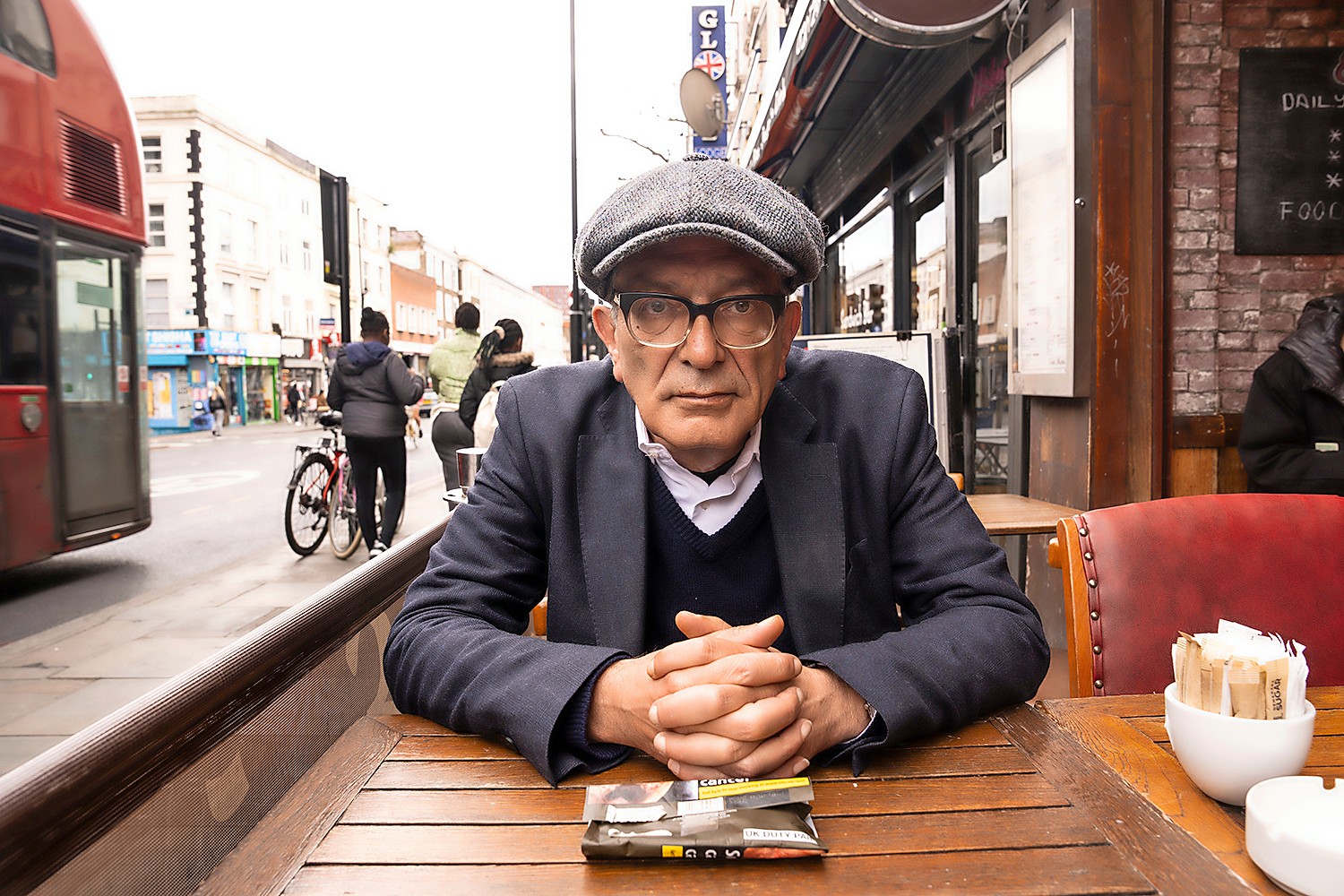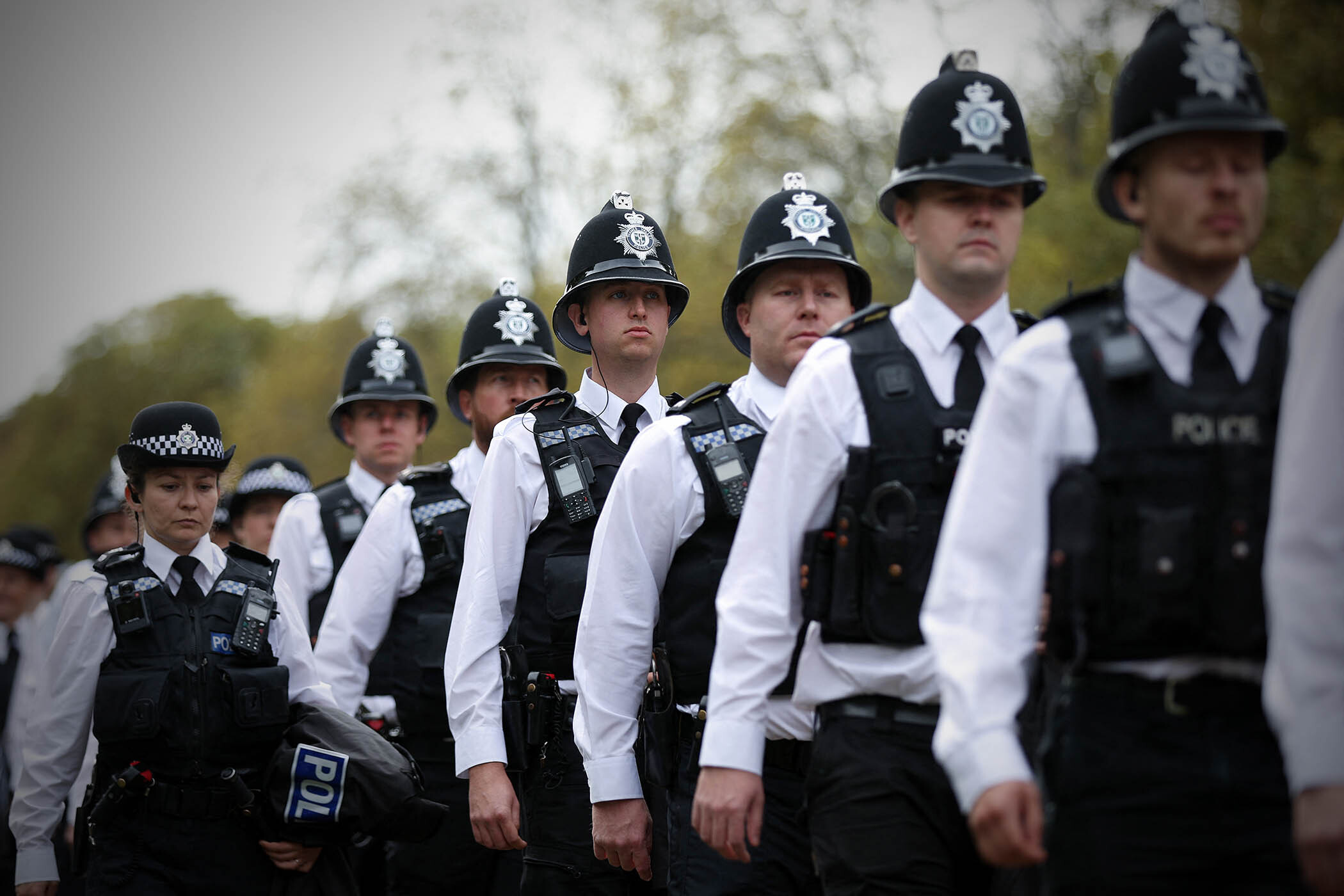Portrait by Antonio Olmos
On the quiet, Maurice Glasman is surprisingly fond of the House of Lords, where since 2011 he has sat on the Labour benches as Baron Glasman of Stoke Newington and Stamford Hill in Hackney. “Look up!” he delightedly instructs me, pointing at gargoyled masonry and the cerulean sky. “Isn’t it like Oxford on acid?”
Admittedly, he comes in for a certain amount of grief in the Lords’ tea rooms. When he shoots his mouth off, as he’s apt to do, some colleagues will send him to Coventry, as if they were at school. But the positives far outweigh the negatives. He adores the staff, most of whom he seems to know by name. Later, he’ll take me for lunch in the canteen, where I’ll watch him demolish a Barnsley chop and an apple turnover with custard. “Absolutely delicious!” he will say, pulling the ring on a can of Coke. His gusto speaks volumes, as perhaps it’s intended to. Not for him the disapproving puritanism of the progressive politician.
Suddenly and somewhat unexpectedly, Glasman, who is 64, finds himself the man of the moment. Lately, his phone never stops buzzing, every day bringing a fresh request for an interview or a speech. “It’s cosmic,” he says of the attention he’s receiving not only from Downing Street, which for the first time in a long time is seemingly listening to the ideas espoused by Blue Labour, the pro working-class, socially conservative campaign group he founded 16 years ago, but also from the US, where he was the only Labour party figure invited to Donald Trump’s inauguration (he speaks to Steve Bannon, the president’s controversial chief strategist during his first administration, every Monday – of which more later). Where others see only uncertainty and danger, he’s full of optimism. The tumultuous first months of 2025, he believes, mark the beginning of something: a new world order that will in the end only be good for Britain.
Glasman and I met first – possibly, he was checking me out – at his favourite haunt, Evin, a Turkish restaurant in Dalston, Hackney, close to where he lives; he loves to talk, and his East End lyricism meant that I forgave him instantly for having been 40 minutes late (his excuse was that he’d been up until the small hours, playing the guitar).
We’re seeing an experiment in the US where things are being dismantled, but we’re yet to see what will go in their place
We’re seeing an experiment in the US where things are being dismantled, but we’re yet to see what will go in their place
In theory, the Lords is a little more elevated than Evin but, alas, Glasman smokes 40 cigarettes a day and in parliament the habit is banned almost entirely. Beside the racks where peers park their bicycles are two ugly, purpose-built, three-sided huts for the nicotine-addicted. In the first of these is his friend, the rosy-faced 16th Earl of Lindsay (Glasman, incidentally, is appalled that Labour wants to banish the few remaining hereditary peers: “As if the place would be any more democratic without them!”). In the second, he and I sit, the pair of us blinking like moles in the spring sunshine.
Unlike most Labour MPs just now, Glasman isn’t worried at all, about anything. “I’m resolute,” he says, with a knowing smile. “The first six months of this government were awful, irredeemable: no direction, horribly progressive. But reality has led Keir Starmer to a surprising place.”
Ever since the prime minister’s visit to the Oval Office, where he told Trump that the UK would, unlike the US, be standing by Ukraine, Glasman has seen his party leader with new eyes. “What I see is someone who’s beginning to find his meaning!” he says. “He came in as a human rights lawyer, a procedural [person]. But the world’s not like that, and it has been a shocking experience for him. None of this was his choice, of course. He wouldn’t have chosen Trump to be president. He certainly wouldn’t have chosen to leave the EU. But this whole Ukraine thing has given us the possibility of an industrial strategy thanks to an increase in defence spending. Britain is unquestionably the leading military, diplomatic and political power in Europe. This is going to be the foundation of a complete reorientation!”
Related articles:
In this moment, nothing fazes Glasman. Bring on next week’s local elections, he insists, even though Labour will “get its head kicked in” by Reform. Blue Labour is, he believes, the antidote to Reform for the Labour party, the group’s ideas offering the party its only genuine hope of countering the threat of Farage. Unlike many, he’s sympathetic to the benefit cuts announced by the chancellor, Rachel Reeves, with the proviso that he only wishes she would go further: “I would like to see a real decimation of the administrative welfare state; under every government, the state grows bigger and more useless.” He has no time for those like Diane Abbott, who are gnashing their teeth at the prospect: “They had the party and they fucked it up, and now they’re not only powerless, they’re useless. They’ve got nothing intellectual; no analysis of capitalism at all. They’re just reactive in their defence of free stuff.”

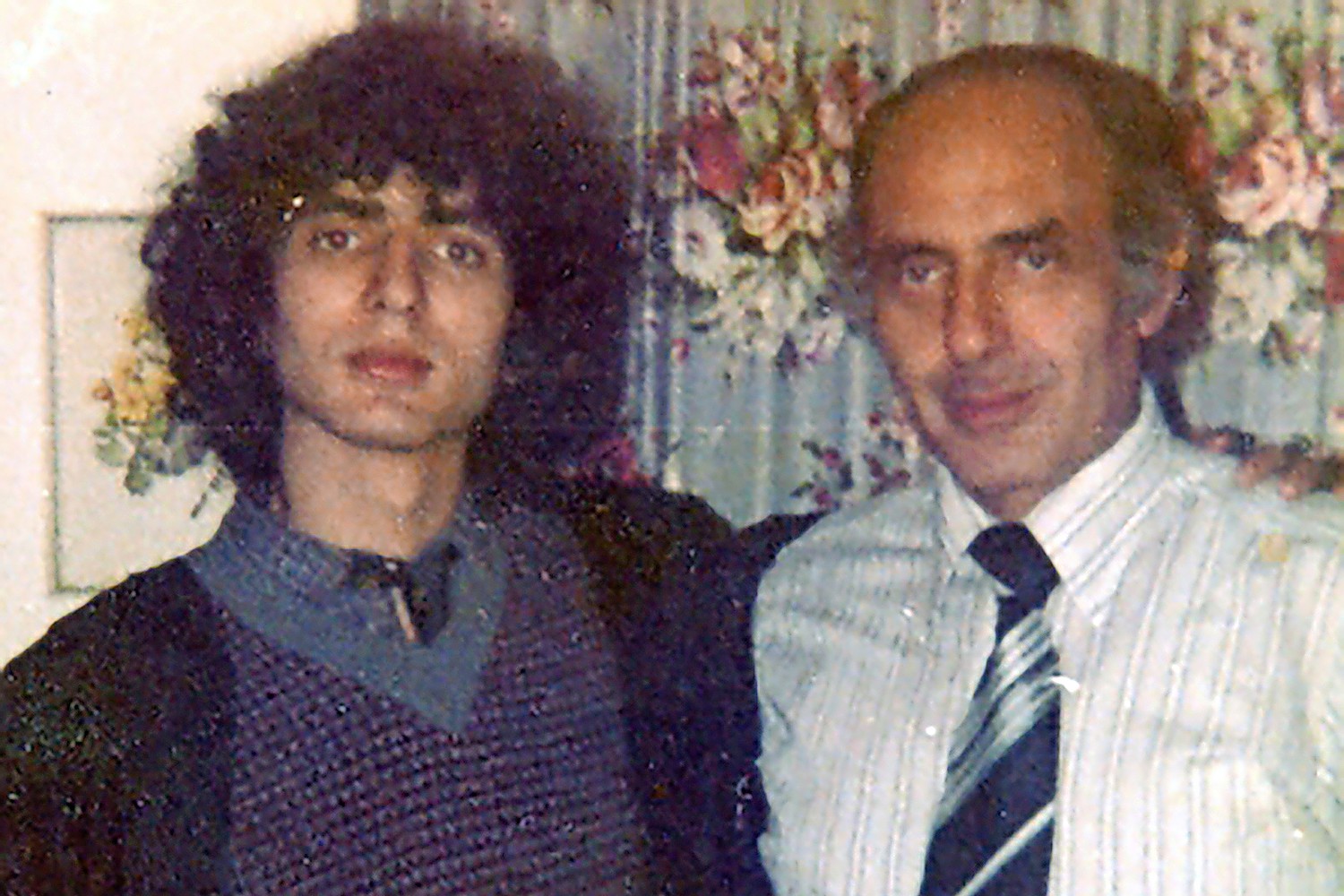
Present-day notions of disability may be traced, according to Glasman, back to Thatcherism, when they were first used to “hide the huge unemployment”; while we should have “absolute love and compassion for anybody who is disabled”, there has, he insists, “got to be a conversation” about disability. In Grimsby, where he’s involved with a community project, 40% of men, he claims, are on antidepressants, having been “targeted” for “what’s basically sedation”, when in his view they should have been offered agency and hope.
Newsletters
Choose the newsletters you want to receive
View more
For information about how The Observer protects your data, read our Privacy Policy
As for Trump’s tariffs, unlike pretty much everyone else, he finds them thrilling. “I feel fantastic! All my life, I’ve been trying to develop a pro-worker settlement. This is the end of globalisation! Free movement is over. The Deliveroo economy is over. We have to produce again!” Blue Labour dreams of the establishment of a new economic ministry inside which the Treasury, a mournful legacy of “neoclassical orthodoxy”, would operate as “an accounts department”. But for the time being, all this disruption will do very well instead. He laughs. “In a weird way, Trump’s behaving like a Marxist. Of course he’s no idea he’s executing a Bennite policy, but that is what he’s doing.”
Won’t the financial markets force a U-turn? I wonder, watching him light another cigarette.
Apparently not. “I’ve had several conversations with senior figures in the Trump administration. This is not a negotiating position.”
(When Trump does indeed pause the tariffs, a few days after our encounter, I message Glasman to ask if he’s disappointed. But no, his tail is still up and wagging. “It’s a battle,” he replies. “The battle is between Musk and Bannon. Oligarchs and populists. Deals will be done, but by the end of it, globalised trade will be over.”)
It may, at this point, be difficult to see why No 10 is flirting with Blue Labour ideas or even listening to Glasman at all; the threat of Reform aside, received opinion on left and right is that trade wars and economic uncertainty will only impoverish this nation further. But the relationship between Glasman’s group and No 10 is very real, and its prime conduit is Morgan McSweeney, the strategist and Labour organiser who has been Keir Starmer’s chief of staff in Downing Street since last October. McSweeney, sources insist, is in touch with at least one Blue Labour activist – not Glasman, but someone close to him – on a daily basis.
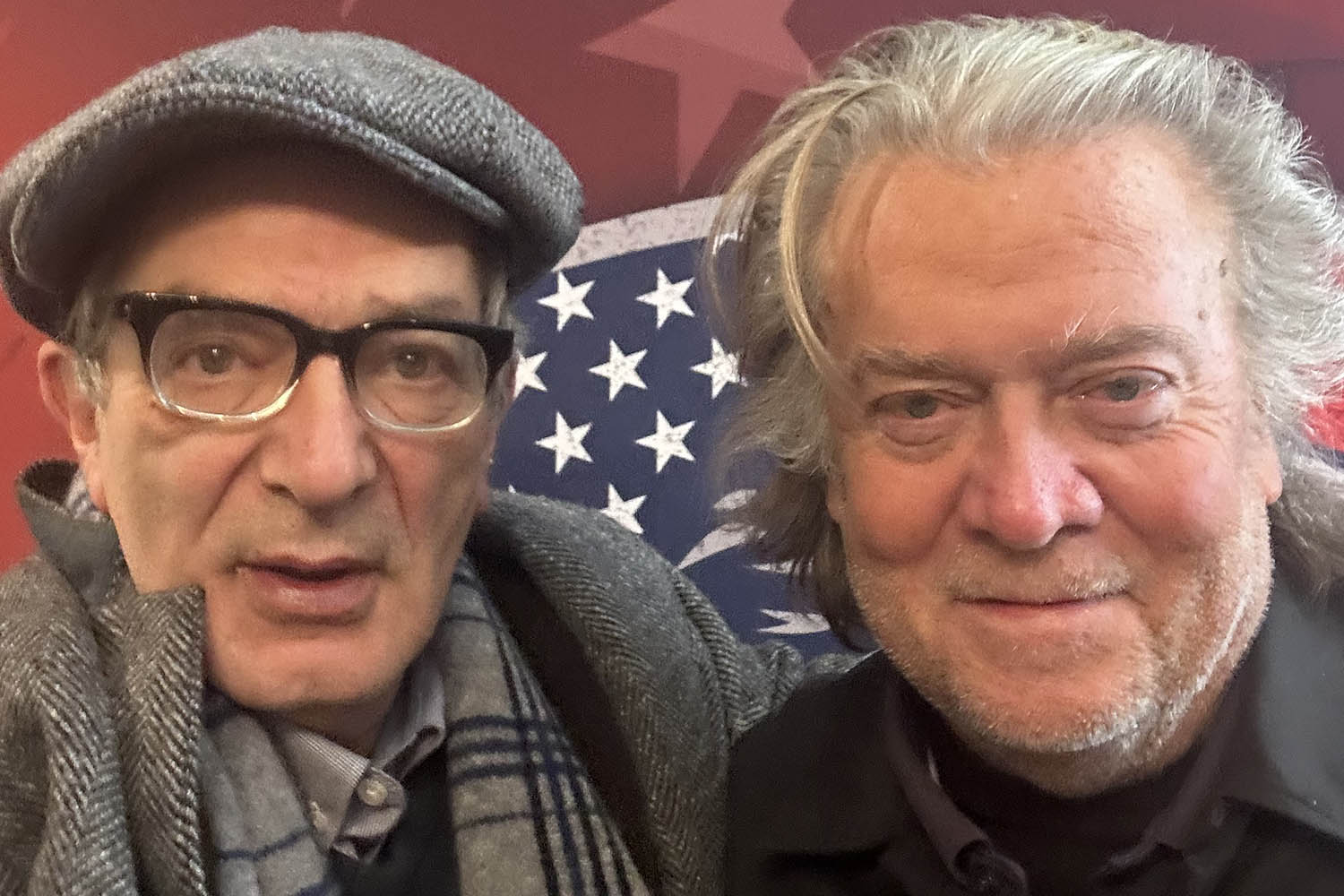
Glasman has known McSweeney since 2006, when the British National party notoriously won 12 seats on Barking and Dagenhamcouncil. “Jon Cruddas [the then MP for Dagenham] got a group of us together. ‘What are we going to do?’ he said. Our view was that Labour had got to a position where it didn’t know what it was doing. Someone would say they were worried about immigration, but Labour wouldn’t listen. We listened. Then it was all about acting and cleaning the streets, and Morgan was a big part of that. He organised local people to [clear up] fly tipping. He was very effective, and [in 2010] we won all the seats back. So yeah, it’s a longstanding, genuine political relationship.”
Blue Labour first came to prominence soon after that campaign, though its rise was short-lived. While the Blairites had been keen on Glasman’s thinking, the Brownites were against. In an interview at the time, Glasman said more than perhaps he should have about immigration (he spoke of freezing inward migration; he also suggested the Labour party should listen to and try to win over members of the English Defence League), and thereafter he was deemed to be toxic. “I was astounded by the level of hate,” he says, throwing his head into his hands. “I was racist, fascist, imperialist! I was hanging there on the cross while they threw rotten tomatoes at me. I haven’t forgotten it. No one is more exclusive than those who believe in inclusivity. No one is meaner than those who preach kindness. No one is more hateful than those who say they want gentle politics.”
For a while after this, he fell silent, his only succour the messages he received from those who believed him to be the real voice of Labour. But then Brexit happened – he was a leaver, of course – and the atmosphere began to change. Now, he and his group are back: “a resurrection”, as he puts it.
But what does McSweeney want from him? Is the idea that Blue Labour will shape policy?
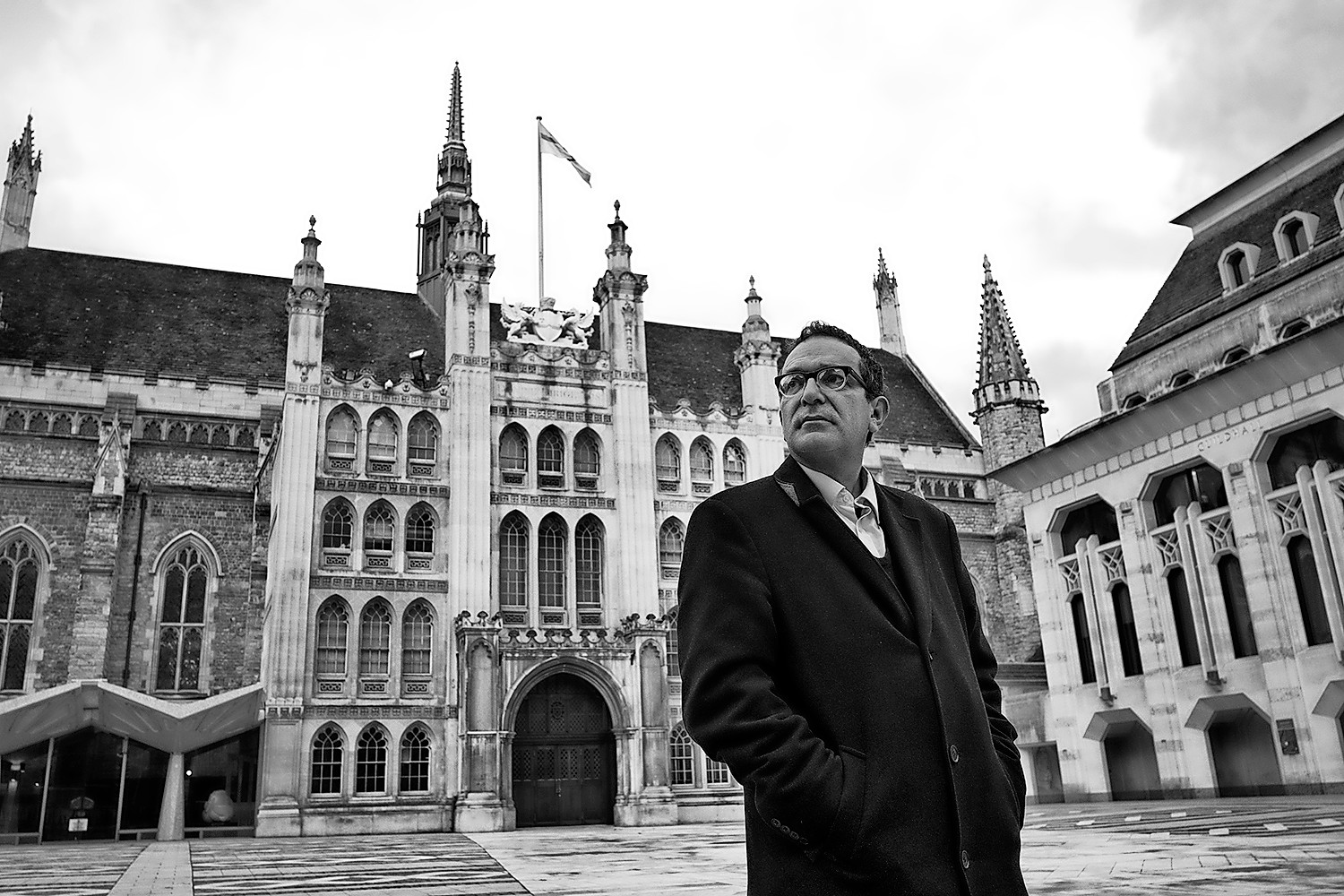
“I guess if he looks to us for anything, it’s to push it,” he says, meaning, I think, that McSweeney is aware that the government badly needs a philosophy, and is looking to Blue Labour to supply some of it. Like most of those involved with his group, Glasman believes this is Labour’s last chance; if voters’ disillusionment continues, the two-party system will be over, in his analysis, and the door open for Reform and, perhaps, other extremist groups. “It’s game over if they don’t change. People are losing faith in government, in the most general way, and someone has to stop that. Labour must be a pro-worker, patriotic party, not talking gibberish about diversity.” It needs, he says, to be a party of place. “When globalisation came along, they said the future was everybody leaving where they grew up to go and live in cities. Social mobility was judged by the distance you’d moved away from your mum. But people don’t want to live 500 miles from their mum!” When Glasman pointed this out 15 years ago, he was accused of nostalgia and worse. But again, he insists, things have changed. The housing crisis means no one can afford to move away: “I get a lot of hate [from parts of the party] because the future didn’t turn out to be what they wanted it to be.”
Blue Labour’s philosophical godfathers are, he tells me, John Ruskin and William Morris. The group is on the side of community; of the church, the mosque and the synagogue. It is patriotic, but not nationalistic, and it loves and respects the King. It cares deeply about the landscapes of Britain, whether in the countryside or the city, and would like to see the return of civic pride. Above all, it is concerned for families, in whatever form they take. “Progressive liberalism sees the individual outside of relationships,” he says. “The greatest freedom, it thinks, is not to have relationships; even sex is a violation of autonomy. The possibility of love is the meaning of life, but they deny it, the same way they deny joy.” His voice rises. “It’s a pathetic philosophy. Honestly, they don’t want you to enjoy anything, not even sex with your wife!”
Labour must be a pro-worker, patriotic party, not talking gibberish about diversity
Labour must be a pro-worker, patriotic party, not talking gibberish about diversity
Glasman grew up in Palmers Green, north London, in the same street as the suburb’s most famous resident, the poet Stevie Smith. On his father’s side, the family, which is Jewish, had come to Britain from a shtetl in present-day Ukraine – this partly explains his passionate commitment to the country, to which he’s about to travel for the eighth time when we meet. In London his dad, Coleman (“Collie”), took over the toy business Glasman’s grandfather had built (it later went bust). His mother, Rivie, on the other hand, came from a poor family in Stamford Hill, where her father worked as a presser. The Glasmans were dead set against the match. “But my father was just completely devoted to her,” he says. “He saw her on the bus, and he fell in love. She was very beautiful: dark hair, dark eyes, almost biblical.” Seven months later, the two of them bumped into each other at a wedding, and from then on, they saw each other every day until his father died.
His parents were “very loving and encouraging” and, having left school at 13, they were keen on education, especially his mother (he has four siblings). “When I got to Cambridge [to read history], I was very unhappy, but I couldn’t leave. My dad said I was my mother’s proxy. ‘I don’t care how you feel,’ he told me. Leaving was out of the question.” His parents visited him every Sunday without fail, and while his father probably knew how “wigged out” he was, staying up late and smoking weed, his mother was, he hopes, wholly oblivious.
After Cambridge, more wigging out. He spent the following four years making a living from music, writing songs and playing his trumpet. But while he has the appearance of someone who frequents Ronnie Scott’s even today, it wasn’t his true calling, and nor was it good for his brain. “I could barely get to the end of a Hugo Young article in the Guardian,” he says, though this may then have been a fairly common problem. The only thing to do was to go cold turkey. First, he went to York University to do an MA. Then he disappeared to Florence to do a PhD – and it was there that his political brain was sparked. “I discovered Machiavelli, and I read Karl Polanyi [the Austro-Hungarian economic socialist], who really blew my mind.”
It was 1987, and he wondered about Solidarity in Poland, the Catholic union movement that chose to enable a free market after the fall of the communist regime; it contrasted starkly with what he knew of post-war Germany: “No secular academics could explain the German economy after the war to me,” he says. “They had trade unions on the boards of companies. They had local banks that couldn’t lend outside the region.” An Italian colleague pushed him in the direction of Catholic social teaching – he read an encyclical about the dignity of work – and this was “his homecoming”.
Does he believe in God?
Yes, and no. “He’s not very impressed with us, is he?”
Florence was wonderful. But in 1995, Glasman’s father died aged just 67. “That was shocking to me. I was very immature. I had a feeling of all the lights going out. My mum had five sisters. She wasn’t really a person who lived on her own.” He came home to live with her, got a job at the then City of London Polytechnic, and there he stayed for 16 years – a formative experience. “That’s where I saw the degradation of academia,” he says. “The rise of human resources. The way academics were no longer free to speak.”
He coined the phrase Blue Labour in 2009, its ideas born of his academic research, which focused on the limits of the market, and of the organising work he did with London Citizens, a grassroots alliance of local communities (he left London Metropolitan in 2015).
In 2010, Ed Miliband, the then Labour leader, announced that Glasman was to be made a life peer. He was astounded. “I think he thought it was some kind of electoral strategy or something,” he says, “but we never spoke much [afterwards].” Glasman didn’t mince his words when it came to Miliband – “no strategy, no narrative and very little energy” he said of him in 2012 – but he’s grateful to him, nonetheless: “[The peerage] has been an amazing thing.” He and his wife, Catherine, are separated now, though they still spend Friday nights together. (“It’s a strange separation: I love my wife.”) But the memory of the years when life was a struggle financially is ever-present. The Glasmans lived in a flat above a shop. “We had no money. I had four children in one bedroom until I got the peerage.”
We’ve had our lunch in the canteen by this point, and have repaired to the House of Commons terrace, where smoking is still permitted, to talk about America. How did it happen that he was the only Labour person to be invited to Trump’s inauguration?
Apparently, it was the work of the vice-president. “JD Vance sent me his book [the bestselling memoir, Hillbilly Elegy] when it came out [in 2016],” he says. “I had no idea who he was, but I said I liked it, and we had a brief exchange about whether you could rebuild the New Deal coalition among the Democrats – in those days, he was thinking in a completely different way.”
The invitation in January was from the Republican National Committee, but it came with a personal note from Vance saying that he was looking forward to meeting Glasman at last.
Did he think about not going?
“That occurred to everybody except me. But I wasn’t going to miss this for anything, and then when it turned out that Keir Starmer wasn’t going, and nor was Peter Mandelson [the new British ambassador to Washington], I had to be serious. I would in some way represent the government.”
Did anyone talk to him before he went?
“I had a brief chat with David Lammy, and I exchanged texts with Peter Mandelson. I didn’t know why they were all being so nice. I said: let’s meet in DC. But then it came out they weren’t invited.”
What was the inauguration like?
“It was far out. There were some very intense conversations. A lot of it was me saying: Churchill, the war, us… ” He wants the US to support Ukraine. He and Vance also talked about Catholic social teaching (Vance is Catholic). Glasman asked the vice-president how serious he was about being pro-worker. “He seemed to be very resolute.”
And how did his now weekly phone calls to Bannon come about?
“Farage introduced us, at his party,” he says, without missing a beat. “This is an incredible thing – I only found out about it when I was there – but Farage has got the status of a big senator.”
The party was in a building overlooking the White House. “It was huge. It was packed.” Faced with Bannon, he recalls, the questions flew from his mouth. “‘Are you seriously going to oppose the [Silicon Valley] oligarchs?’ I asked. ‘Or is this just another waste of time?’ He said, ‘You bet, brother. I hate those oligarchs.’” During their Monday calls, Bannon asks about Blue Labour and trade unions, and Glasman presses Ukraine’s case. “Bannon loves Zelenskyy,” he insists.
Let’s not get too carried away, however. Glasman’s sympathy for those who voted for Trump, seeking “deliverance from the professional managerial class with their lanyards”, and his enthusiasm for some of what the president is doing, should not be mistaken for support. “I’m just saying: look at the space that has opened up. Labour cannot turn its back on working-class grief. It must walk towards it.”
But Trump! Isn’t he just deranged?
Glasman smiles. “Well, he’s Julius Caesar,” he says. “He’s Napoleon crowning himself.”
Glasman’s critics – and there are many – accuse him of being all talk. “I like him personally, but there’s nothing to his economic ideas,” as one former shadow minister puts it to me. Many progressives, meanwhile, loathe him. “Why keep treating him as one of us?” asked the news website Labour List in February, aghast at Glasman’s recent appearance on Steve Bannon’s War Room podcast. But Blue Labour is no longer all about him. Jonathan Rutherford, another of its leading lights, is co-leading the Future of the Left Project at the right-leaning thinktank, Policy Exchange, and he and Morgan McSweeney have a long association (they were both at Labour Together, the thinktank that backed Starmer as Labour leader). In the cabinet, John Healy, the defence secretary, has Blue Labour instincts; ditto, possibly, the justice secretary, Shabana Mahmood. Most significantly of all, since 2024 there has been a Blue Labour caucus in the Commons, led by Dan Carden, the 38-year-old MP for Walton, Liverpool. “We have a double-digits meeting every week,” he says. “But we’re always adding people to our WhatsApp group.”
Carden has impeccable Labour credentials. His father was a shop steward during the Liverpool dockers’ strike; from the age of eight, he stood on picket lines. He is gay, and a recovering alcoholic, and both these things are key to the way he thinks about the world. But what really marks him out is his frankness. “I have a real fear, after eight years in parliament, of never being in a situation where I’ll be able to say that Walton is in a better state than it was,” he tells me, subsequently, as we sit on the grass in St James’s Park. “I feel I must either push for radical change, or get another job.”
Like Glasman, Carden believes Trump has opened up a space in British politics. But he also urges caution. “We’re seeing an experiment in the United States where things are being dismantled, but we’re yet to see what’s going to be put in their place. The important thing about Blue Labour is we care about what’s put in place.” Rachel Reeves’s much-vaunted industrial strategy had better be seriously heavyweight.
But doesn’t life move fast?
A few days after this conversation, parliament is suddenly recalled to pass legislation that will essentially bring about the renationalisation of British steel.
How, I wonder, does Glasman feel about it? In the hours before the vote, I message him.
He replies immediately, with all of his usual fervour. “Yes, yes,” he writes, hot from a GB News sofa. “Nationalisation is vital for industrial strategy.” His conviction, like the virgin steel produced by Scunthorpe’s blast furnaces, is unalloyed. “Now I’m sure we [Blue Labour] will win.”
Photographs: Delil Souleiman/AFP/Getty, Maurice Glasman, Tom Stoddart Archive/Getty
